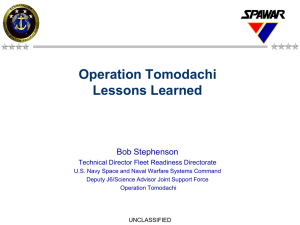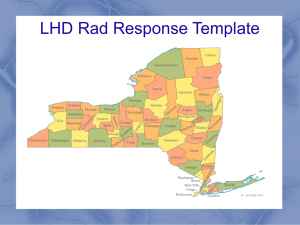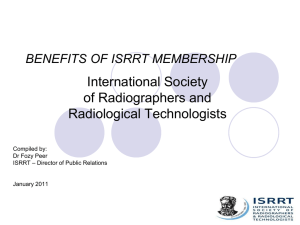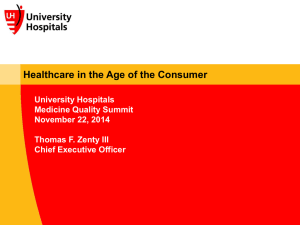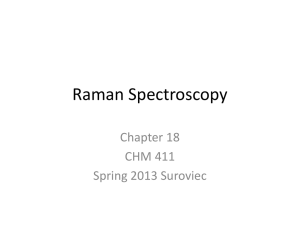Authorisation and competence in activities
advertisement
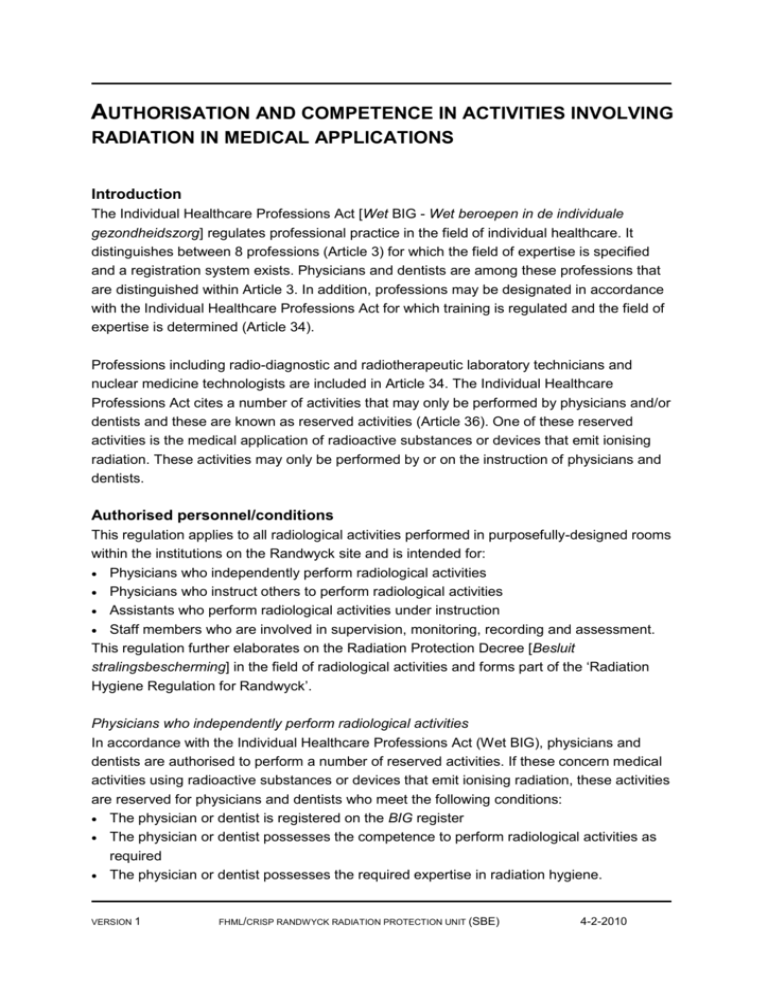
AUTHORISATION AND COMPETENCE IN ACTIVITIES INVOLVING RADIATION IN MEDICAL APPLICATIONS Introduction The Individual Healthcare Professions Act [Wet BIG - Wet beroepen in de individuale gezondheidszorg] regulates professional practice in the field of individual healthcare. It distinguishes between 8 professions (Article 3) for which the field of expertise is specified and a registration system exists. Physicians and dentists are among these professions that are distinguished within Article 3. In addition, professions may be designated in accordance with the Individual Healthcare Professions Act for which training is regulated and the field of expertise is determined (Article 34). Professions including radio-diagnostic and radiotherapeutic laboratory technicians and nuclear medicine technologists are included in Article 34. The Individual Healthcare Professions Act cites a number of activities that may only be performed by physicians and/or dentists and these are known as reserved activities (Article 36). One of these reserved activities is the medical application of radioactive substances or devices that emit ionising radiation. These activities may only be performed by or on the instruction of physicians and dentists. Authorised personnel/conditions This regulation applies to all radiological activities performed in purposefully-designed rooms within the institutions on the Randwyck site and is intended for: Physicians who independently perform radiological activities Physicians who instruct others to perform radiological activities Assistants who perform radiological activities under instruction Staff members who are involved in supervision, monitoring, recording and assessment. This regulation further elaborates on the Radiation Protection Decree [Besluit stralingsbescherming] in the field of radiological activities and forms part of the ‘Radiation Hygiene Regulation for Randwyck’. Physicians who independently perform radiological activities In accordance with the Individual Healthcare Professions Act (Wet BIG), physicians and dentists are authorised to perform a number of reserved activities. If these concern medical activities using radioactive substances or devices that emit ionising radiation, these activities are reserved for physicians and dentists who meet the following conditions: The physician or dentist is registered on the BIG register The physician or dentist possesses the competence to perform radiological activities as required The physician or dentist possesses the required expertise in radiation hygiene. VERSION 1 FHML/CRISP RANDWYCK RADIATION PROTECTION UNIT (SBE) 4-2-2010 Physicians who instruct others to perform radiological activities Physicians and dentists who are authorised to perform radiological activities may also instruct others to perform such activities. However, they remain responsible in their capacity as a medical professional for the radiological activities that are performed by others (under their instructions). For that reason, they may only instruct someone to perform radiological activities if the following conditions are fulfilled: The physician or dentist gives directions to the person working under his/her instruction, in so far as is reasonably necessary, and ensures that supervision and intervention is assured at all times The physician or dentist must be able to reasonably assume that the person who will carry out his/her instructions possesses the competence to be able to perform radiological activities as required. The physician may reasonably assume in this regard that the person working under his/her instructions is competent if this person has followed a course of training in accordance with Article 34 of the Individual Healthcare Professions Act, in this case, radiological and radiotherapeutic laboratory technicians and nuclear medicine technologists. Assistants who perform radiological activities under instruction Any person who receives an instruction to perform radiological activities may do so if the following conditions are fulfilled: The instructor is independently authorised to perform radiological activities, or more specifically, the instructor: Is registered in the BIG register Is competent in performing radiological activities as required Possesses the required expertise in radiation hygiene The person who carries out the instruction must act in accordance with the directions given by the instructor The person who carries out the instruction possesses the competence required to carry out the instruction in the proper manner. In this case, such individuals are radiological and radiotherapeutic laboratory technicians and nuclear medicine technologists. VERSION 1 FHML/CRISP RANDWYCK RADIATION PROTECTION UNIT (SBE) 4-2-2010 Radiological activities and responsibility In order to establish the responsibility concerning radiological activities, the obligations that a competent professional must fulfil are listed below. The physician who independently performs the activities or instructs others to do so: Assesses whether he/she possesses sufficient expertise in radiation hygiene to perform the activities Ensures that his/her expertise (the type of training and when this was completed) is recorded in the internal register created for this purpose and which is held by the management team of the institution Assesses whether he/she is sufficiently competent to perform radiological activities If he/she is not sufficiently authorised and/or competent, ensures that the activities are performed under the responsibility of a physician who is authorised and/or competent Before giving an instruction, ascertains whether the person who will carry out the instruction is authorised and competent Ensures that the necessary directions are given, that supervision is provided and that intervention is ensured. The professional who performs activities at the instruction of another person Ascertains whether the instruction originates from a physician who is registered in the internal register. If in any doubt, he/she should report this to the on-site radiation expert Assesses whether he/she is authorised and competent to carry out the instruction Ensures that directions are given where necessary, that supervision is provided and that intervention is assured if necessary. Departmental protocols Specific details regarding the aspects listed below have been elaborated upon further by the radiological departments in departmental procedures and/or protocols. Instruction The physician or dentist indicates in a particular stage of diagnosis or therapy when radiological activities are to be performed and he/she may perform the activities him/herself or instruct another professional to do so. The manner in which the instruction must be laid down within the institution within an on-site procedure and in such a way that fulfils the conditions within this regulation. VERSION 1 FHML/CRISP RANDWYCK RADIATION PROTECTION UNIT (SBE) 4-2-2010 Directions Directions must be provided by the physician or dentist if this is reasonably required (Article 38 of the Individual Healthcare Professions Act). Supervision on the part of the physician is deemed to be: The opportunity to observe the activity and Being in a position to take action. The extent to which the physician supervises and intervenes is in particular determined by the potential complications and the complexity of the radiological activity. This also means that the person who undertakes the instruction must request a more stringent form of supervision and intervention if exceptional circumstances form grounds for this. Definitions and terms The terms used within these regulations are derived from the texts of the Articles contained within the Radiation Protection Decree pursuant to the Nuclear Energy Act [Besluit stralingsbescherming Kernenergiewet (Bs)] and the Individual Healthcare Professions Act (Wet BIG). Radiological procedure State the indication, based upon the available medical data and the question, or approve this and determine the method of execution and, if necessary, the sequence of the activities Perform the radiological activities using ionising radiation (such as in the form of radioactive substances or X-rays), while observing radiation hygiene, in accordance with on-site procedures Evaluate the results, partly in relation to the findings obtained in different research or intervention Record the obtained data Draw up a report regarding the diagnostics, therapy or intervention, including a conclusion and any recommendation Store/archive the results of the activities, including (selected) images and reports. Radiological activities Medical treatment using ionising radiation (Article 1, paragraph 1 of the Radiation Protection Decree). Radiological activities may relate to persons who: Are exposed to radiation as a patient Participate in population screening Undergo occupational-medical tests Undergo medical tests for legal purposes Participate on a voluntary basis in medical or biomedical research programmes (Article 53, paragraph 1 of the Radiation Protection Decree). VERSION 1 FHML/CRISP RANDWYCK RADIATION PROTECTION UNIT (SBE) 4-2-2010 Independently authorised professional The treating physician or dentist under whose responsibility in his/her capacity as a medical professional a radiological activity is performed. He/she is justified in performing the activity him/herself and to act as an instructor. Instructor The treating physician who gives an instruction to perform a radiological activity (Article 38 of the Individual Healthcare Professions Act). Person carrying out the instruction A professional who is not independently authorised within the capacity of his/her position who performs a radiological activity at the instruction of an independently authorised professional. Referring physician A physician or dentist who requests for a radiological activity to be performed (Article 52 of the Radiation Protection Decree). Authorized and competent An individual who is qualified to act as a treating physician. The competence of the physician relates to his/her individual knowledge (expertise) and ability (practical skills) (Explanatory Memorandum accompanying Article 36 of the Individual Healthcare Professions Act). Expert An individual who fulfils the requirements of expertise in relation to radiation hygiene as laid down in the ministerial regulation (Article 54 of the Radiation Protection Decree). The requirement of competence is partly fulfilled by means of the individual's expertise (Explanatory Memorandum accompanying Article 54 of the Radiation Protection Decree). BIG register The national register in which a physician must be listed in order to be authorised (Articles 14 and 15 of the Individual Healthcare Professions Act) VERSION 1 FHML/CRISP RANDWYCK RADIATION PROTECTION UNIT (SBE) 4-2-2010 Expertise requirements for medical specialists A ministerial regulation in which the expertise requirements in relation to radiation hygiene are laid down does not (yet) exist. The current procedures are based on the report of the Health Council of the Netherlands 1996/04, entitled ‘Expertise requirements for medical applications of radiation’ [Deskundigheidseisen voor medische stralingstoepassingen]. Classification of specialists Nuclear medicine physician Radiologist/Radiotherapist Other specialists Dentists Level of expertise 3 3M / 4A 4M / 4A 5 The expertise of a radiological specialist (Radiologist, Radiotherapist and Nuclear Medicine Physician) is guaranteed by the compulsory elements of the training that is followed to achieve these specialisms. The training requirements as formulated by the Central Board for the Recognition and Registration of Medical Specialists [Centraal College voor de erkenning en registratie van medisch specialisten] include a passage regarding following a course of education in radiation protection, which applies to 4 non-radiological specialisms, namely, cardiology, gastroenterology, pulmonology and orthopaedics. This training course is equivalent to level 4. The course of training required to become a dentist includes training in radiation hygiene at level 5. VERSION 1 FHML/CRISP RANDWYCK RADIATION PROTECTION UNIT (SBE) 4-2-2010
